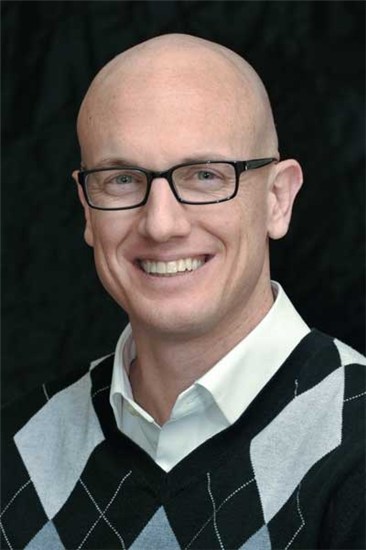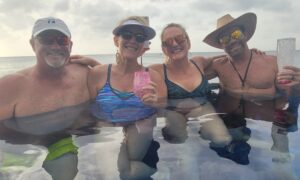By Chad Fleming, OD, FAAO

SYNOPSIS
For an independent OD, retirement planning is a career-long process. Strategize how much to save right from the start—and calculate the payoff in later years.
ACTION POINTS
DIVERSIFY RETIREMENT SAVINGS. Commercial real estate, along with stocks and bonds, build a strong portfolio.
SET ASIDE MONEY EVERY MONTH. Begin early in your career, and be steadfast in saving each month.
GET EXPERT HELP. Team up your CPA with a financial advisor who can do dynamic portfolio management and financial life planning that best suits you.
Retirement planning isn’t something that begins when a doctor turns 60 or 70; it’s a process that independent ODs like myself should begin within the first three years of a professional career. Here is how to plan for a profitable wrap-up to your professional life.
Sponsored Content

Take an important step towards your future – start a retirement savings plan
Starting a retirement savings plan is an important step for most small business owners. Yet, research shows that retirement plans are less prevalent among small employers1. Because a large number of US employees work for small businesses, many future retirees end up struggling financially during their retirement years.
In 2006, the US Congress established the resolution, National Save for Retirement Week and designated the third week of October to raise public awareness on the importance of saving for retirement and the various retirement vehicles available to small business owners and other entities. And each year, a set of senators pass a similar resolution to re-establish the week and its goals.
At AXA, we support this initiative as it has become increasingly critical to have a retirement savings plan available to supplement Social Security income and maintain the lifestyle to which an optometrist is accustomed. We have supported AOA members for over 45 years in retirement planning and are committed to helping them plan for a successful retirement from evaluation of options, to plan inception, to retirement and beyond.
Contact a Retirement Program Specialist at 800-523-1125 or visit us at axa2plan.com to learn more about our offerings or to schedule a free retirement planning consultation.
1 LIMRA’s Market Facts Quarterly. A Balancing Act – Why Many U.S. Small Businesses Don’t Offer Retirement Plans. Number 4, 2013.
Why Bother Planning for Retirement?
Many optometrists make the mistake of not planning for the sale of their practice with the appropriate valuation in mind. They make the assumption that the sale of their practice will sufficiently provide for them in their retirement. However, it is often an unpleasant surprise that the money gained in the sale of the practice is not enough to allow the OD to maintain the lifestyle to which he or she is accustomed.
Diversify Invested Retirement Savings
Diversification has been the mantra for years, and it continues to hold true today. For an optometrist, like myself, it means not putting all of my investments into optometry. My partner and I own the practice of Wichita Optometry, PA, which is one of three legs to the stool of my personal investment diversification. I most likely have 15 to 20 years before I retire, and my goal at this point is to continue to make investments that will generate passive income. Passive income allows an optometrist to relieve themselves of the pressure to be seeing patients in-office to generate income.
In addition, commercial real estate is a good investment. I have invested in the buildings and property that Wichita Optometry’s two locations reside in. Additional commercial real estate spreads the risk beyond optometry-related investments.
The third leg of my retirement planning involves diversification of securities, which are stocks and bonds. I have spent the last 10 years looking for an investment company that actively manages money within the constraints of a retirement plan and personal investments also. About three years ago, I found a smaller group out of Colorado that utilizes a dynamic investment portfolio approach.
My approach to retirement savings started before optometry school as I was mapping out a life game plan. I firmly believe that we have free will in our life, and that good plans may not come to fruition, but without a direction I know I for sure will not hit my destination. Optometry is a great profession, but I believe that financial freedom allows us to make a greater impact on society and gives us an opportunity to live out faith-life purposes beyond our profession.
Pinpoint Individual Challenges
The challenge I have with my personal portfolio is factoring in my children and the growth of our family. My wife and I are not getting any younger, but we still continue to believe we are called to parent more children. Through the amazing blessing of adoption, we have a two-year-old and four-year-old currently. To make the best adjustments to my financial planning, I am spending time with financial advisors whose wisdom and judgment I trust, and leaning on them for advice in what to prepare for.
In our particular personal situation, we find it also is helpful to have a financial advisor who can calculate future costs of adoption, school planning and possible family expenditures. When we look over the financial map it helps our family make decisions on when and where to invest money for the short- and long-term.
Learn Delayed Gratification–Set Aside for Later
The power of combining compound interest and delayed gratification is explained best by experience. The time value of money is a principal that divides the early retirees from those working late into life. Many of us never get to experience what Malcom Gladwell calls “The Tipping Point” because we do not make decisions now thinking of the impact later. Many ODs, especially my generation and younger (Generation X, Y and Millennials), have mostly gotten what we wanted when we wanted it. With borrowed money relatively easy to access, we have not had to say “no” to things we want very often. The effect of this lifestyle has resulted in exponential growth in student debt and ODs who are having to work more hours to pay back student loans, new car, house purchases and high-cost lifestyles.
Setting aside money now will allow the average OD flexibility in their work schedule and planned retirement later. Five hundred dollars at the beginning of your optometry career may seem like a lot to take from your paycheck each month. In 20 years at a 5 percent return on investment, that small adjustment in lifestyle equals $208,315.51. Then, after 20 years, if you don’t touch the $208,315.51, and live off of the 5 percent only, an additional $10,416 of passive income will be generated. The earlier an OD starts this process the greater return for later.
Recognize Particular Challenges of Independent ODs
One of the most difficult challenges an independent OD faces in implementing a retirement plan is the continued expenses that arise within the business. There seems to be unexpected monthly overhead that “pops up,” and when money is being funneled to cover those expenses, then retirement planning is put on the back burner.
There are many great companies, like AXA, that can help the OD owner establish a retirement plan within his or her practice. Once the money allotted for retirement is removed from an OD’s pay prior to them seeing it, the discipline becomes much easier month to month.
Recognize Independent ODs Also Have Particular Advantages
Optometry school is one of the most valuable investments an individual can make in their life portfolio. The return on investment is such that an OD’s annual salary will allow them to adjust their personal living expenses so that they can live a comfortable lifestyle and still have money for retirement. An independent OD also has the advantage in most cases of controlling their schedule, thus allowing them to slowly drift into retirement. ODs working one to two days a week can still continue to make a comfortable living assuming they have planned accordingly leading up to this time in their life.
Get Expert Help When Needed
We tell patients to seek the care of an optometrist when they have eye health problems. The same holds true in managing your money. The best managers of my money are professionals whom I trust and are experts in the field. I utilize a CPA who is familiar with optometry and small business, and he helps me make wise decisions when looking to facilitate retirement planning. I then team him up with my financial advisor who does the dynamic portfolio management and financial life planning that best fits my family. If doing it alone, it would be like the primary care physician who puts patients on a sulfacetamide eye drop for “pink eye.” I would be throwing darts hoping to hit the target. Hire professionals; they do cost you money, but are more than worth it over the course of your life.
Related ROB Articles
Refract Your Finances to 20/20: Put More Money Away for Retirement
Wealth Management Tools: Secure Your Financial Future in the Present
Plan Now for Your Practice Exit
Chad Fleming, OD, FAAO, is the Business & Career Coach for AOAExcel and also a partner with Wichita Optometry, P.A. in Wichita, Kan. He assists optometrists in the buying and selling of optometry practices, coaches ODs through the transition process from associate to partner, and speaks on business strategies for practice growth. To contact: BusinessAndCareerOD@ExcelOD.com



























